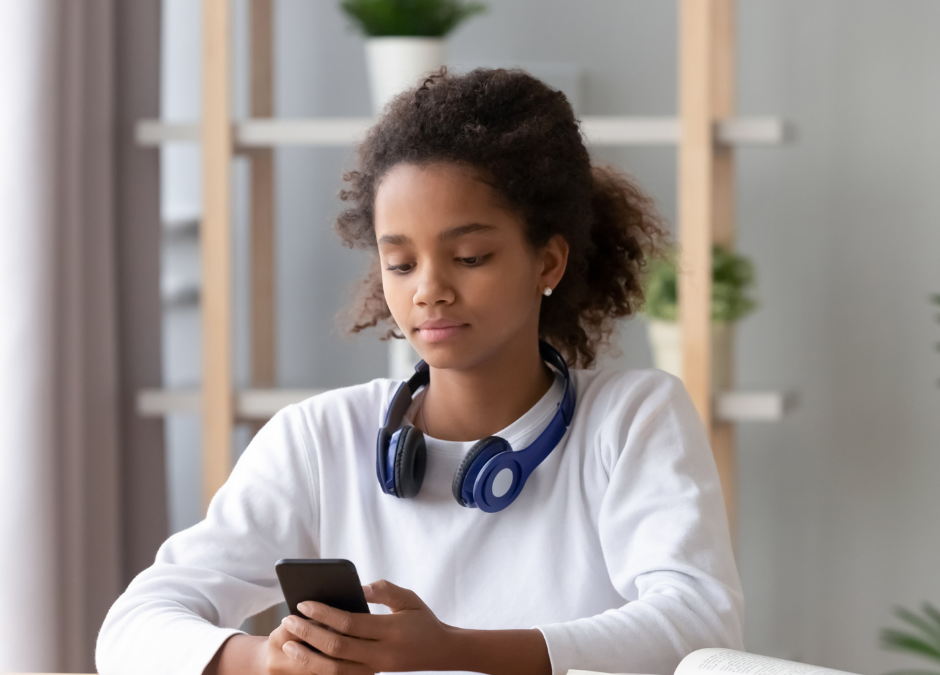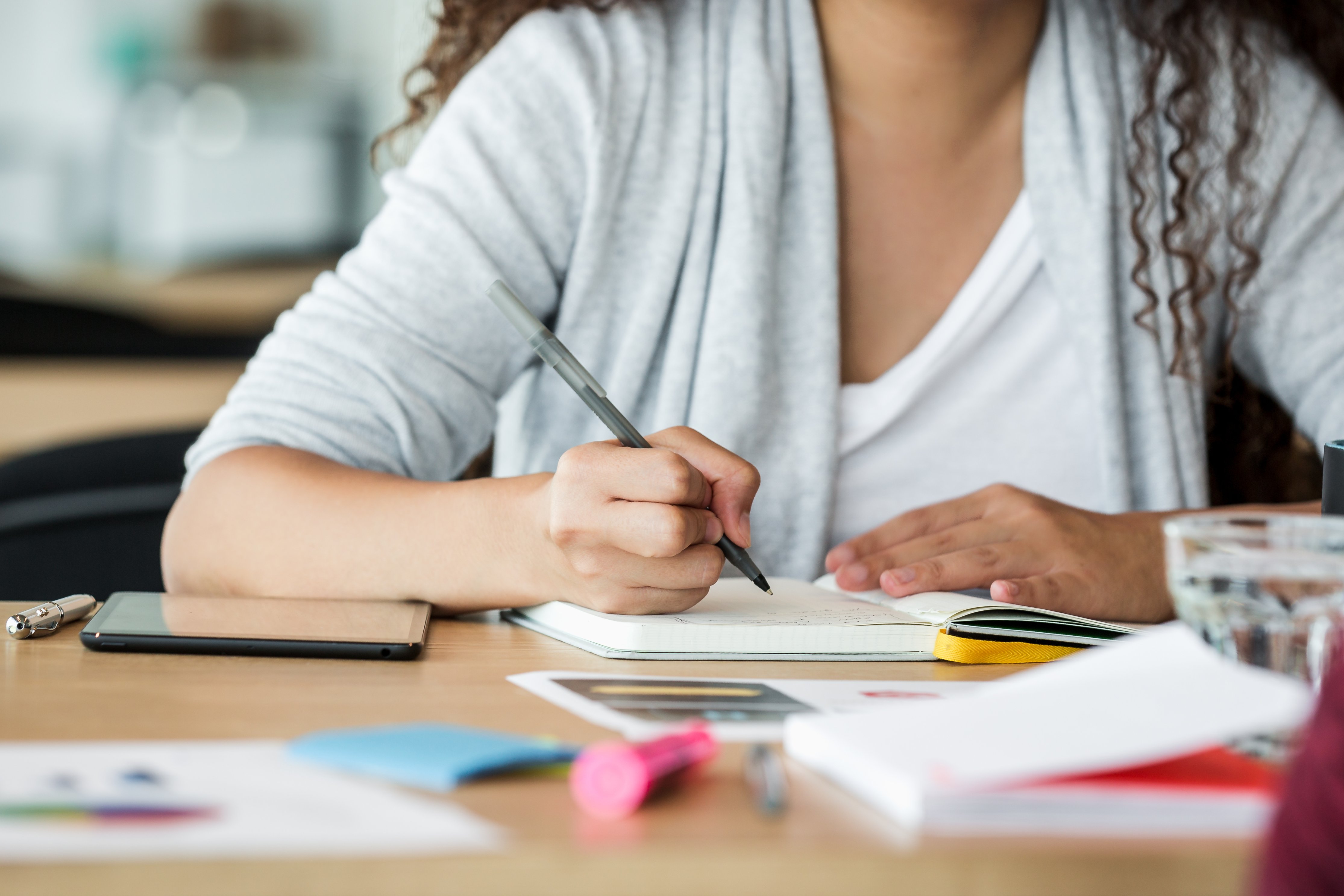Does it seem like your student is on their phone or computer all the time, even when they’re supposed to be focusing on schoolwork?
If so, it can be tempting to take their devices away to stop them from getting distracted.
But for a lot of students, it’s impossible to disconnect completely…especially if they need their computer to complete their assignments.
And even if it was an option, taking away technology wouldn’t necessarily fix the problem.
In his book Indistractable, Nir Eyal discusses two key sources of information our brain uses to determine what to focus on.
External triggers are the cues from our environment that tell us what to do next…like alerts, notifications, and prompts from our devices. Minimizing them can help reduce distractions, and we’ll be discussing more ways to do this in our next post.
But even eliminating external triggers completely won’t help students stay focused if they haven’t solved a more fundamental problem first.
Internal triggers
Internal triggers are cues that come from within us — the feelings and thoughts that pop into our heads and urge us to take action, like the desire to put on a sweatshirt when you’re cold, or the drive to eat when you’re hungry.
On a fundamental level, these internal sources of motivation come from the desire to escape discomfort.
Internal triggers aren’t just physical, they’re also psychological…like the desire to check our email when we feel bored, or the drive to scroll through Instagram or Facebook when we feel lonely.
For many of us, these internal triggers are the REAL reason we spend so much time on our devices.
And the same goes for our students.
Are smartphones distracting? Absolutely. But that’s not why most students spend so much time on them. The REAL problem is that they’re using technology as a way to escape discomfort.
Whenever they feel bored, frustrated, insecure, worried, or afraid of missing out, they’re turning to their phones, computers, and video games to drown out those feelings.
So, if we really want to help students find ways to stay focused and avoid distractions, the first step is to help them develop better tools to cope with these internal triggers.
Managing internal triggers
“While we can’t control the feelings and thoughts that pop into our heads, we can control what we do with them.” Nir Eyal
When students learn to understand and control their internal triggers, they’ll be able to use technology in more healthy and helpful ways.
Here are some steps your student can follow that will help them learn to manage these internal triggers more effectively…
1) Notice the urge. The next time you’re working, pay attention and try to notice each time you feel an urge to do something else instead. Some of these will be obvious…like wanting to check Instagram. Others can be less obvious…for example, if you’re writing a paper and want to Google something, is that really something you need to look up right now? Or just an urge to avoid the difficult work of writing the paper?
2) Identify the feeling. When you feel the urge to do something else, get curious and try to figure out the underlying feeling you’re experiencing. Are you feeling anxious about missing out on conversations with your friends? Frustrated that these math problems are taking forever to finish? Worried that you’re going to get a bad grade on this paper? Pinpointing and observing what you’re feeling can help you figure out what is really driving you to avoid your work.
3) Delay your response. Rather than trying to completely ignore the urge, see if you can procrastinate on it and wait a little bit longer before you respond. Most of us are expert procrastinators…and this is a great time to use that skill to your advantage! For example, if you’re writing a paper and have the urge to check your phone, tell yourself you’ll do it in a minute, just as soon as you finish this sentence or get to the end of this paragraph. Delaying the urge even a little bit will gradually help you get used to tolerating discomfort and recognizing that you’re capable of handling it without needing to escape into digital distractions.
Why this matters
When students take a step back to identify WHY they’re driven to check their text messages or hop on social media, they can learn to manage these urges more effectively.
This is important in order to help them stay focused while they’re working, but the real benefits go far beyond that.
Learning these skills will also help them become more self-aware, less impulsive, and increase their ability to delay gratification, a trait that is linked to a variety of positive outcomes later in life.
The next step
While it’s essential to address the internal triggers that are driving students to get distracted, it’s also important to look at ways to reduce or eliminate the external triggers in their environment that could be pulling them off track.
Check out our next post where we tackle the other main reason students get distracted and how to keep them from being constantly interrupted by their devices all day long.

Join 11,000+ parents helping their students earn better grades with less stress!

About The Author
Dr. Maggie Wray is a certified ADHD Coach & Academic Life Coach with a Ph.D. in Neurobiology and Behavior from Cornell and a Bachelor’s degree in Astrophysics from Princeton. She founded Creating Positive Futures in 2012 to help high school and college students learn how to earn better grades with less stress. Her team of dedicated coaches is on a mission to empower students to develop the mindset, organization, time management, and study skills they need to achieve their goals.
Related Posts
Other Posts You May Enjoy
How Does Your Teen Handle Failure?
How do you feel about failure?Most of us aren’t crazy about it. But at some point, no matter how hard we try, we’re going to fail at something. So, it’s important to consider how to respond to failure when it does happen, and how to improve our resilience so we’re...
Optimistic students earn better grades
Is your student more of an optimist, or a pessimist? Studies have shown that optimists experience a number of benefits later in life, as compared with their more pessimistic peers, including… Better test scores and higher GPAs Lower levels of stress, anxiety, and...
Starting before you’re motivated
Most students want to do well in school. But wanting to do well doesn't guarantee they will feel motivated to work on assignments in the moment. Even students who usually get good grades have days when they just don’t feel like doing homework or studying for their...




